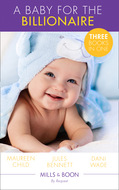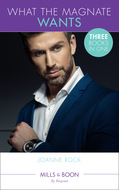Kitap dosya olarak indirilemez ancak uygulamamız üzerinden veya online olarak web sitemizden okunabilir.
Kitabı oku: «Hearts Of Gold», sayfa 2
Heavens! She should be down on her knees kissing Alex’s feet, not denying she’d ever met him, but the denial had been instinctive, and now, she knew, on so many levels, it had been the right thing to do.
And, given that cardiologists and cardiac surgeons, even in a place the size of the US, moved in the same small world, it was also the only safe thing to do.
Having sorted that out, she raised her head and looked at the clock. Five minutes to the staff meeting and she hadn’t checked the room. Hadn’t done anything but panic since she’d seen him.
Again she felt the jolt of recognition that had shaken her body when she’d looked at the man. Could one body know another so instinctively?
After so short a time?
After one dance?
One kiss?
She shook her head. Forget it. Get moving. You’re here to work, and you’re Annie Talbot, not Rowena Drake.
Dragging air into her lungs, willing the deep breaths to calm her nerves, she entered the small lecture room, crossing to the table on the raised dais, checking there was a jug of water and sufficient glasses for those who would be sitting there—her new acquaintance, Phil; the big boss and the rest of his retinue; Col Bennett, hospital CEO; and herself. Col would introduce the newcomers, then hand over to her to introduce the staff members who would be fixtures in the unit—the unit secretary, two paediatric special care sisters, two sisters from the paediatric surgical ward and two theatre sisters. Other staff would be rostered through the unit once operations were under way.
She was using efficiency to block off any other thoughts. If Phil was right about Alex’s plans for the unit, she’d need to focus completely on what lay ahead workwise.
‘All ready?’
She recognised the voice and turned to see Alex Attwood, frowning grimly, apparently at her. Then, as if he’d suddenly become aware of his fierce expression, he adjusted his features into a smile. The expression shifted the planes of his craggy face so he looked not exactly handsome but very close to it.
Though it wasn’t just the look, but a kind of power she felt emanating from him as he came towards her, that made her realise he was an attractive man. Not conventionally good-looking as Phil was, but attractive nonetheless.
Not that she’d considered attractiveness five years ago when he’d asked her to dance. She’d been too caught up in the music and in an illicit feeling of freedom to take much notice of him as anything more than a dance partner.
Until he’d kissed her…
And by then he’d been too close for her to really see much of him.
‘I think so,’ she said, wishing she could press her hands to her overheated cheeks but knowing that would just draw attention to them.
He was looking at the table on the dais, as if checking off who would sit where. Maybe he hadn’t noticed her scarlet cheeks.
‘I’m sorry we didn’t get a chance to get together before today,’ he said. ‘I’d intended getting over on Friday, but a friend asked me to assist at the Children’s Hospital—an emergency admission. Three-month-old brought in from the country with an undiagnosed PDA.’
Mentally, Annie translated the initials into patent ductus arteriosis. The foetal duct between the pulmonary artery and the aorta hadn’t closed, so oxygen-rich blood was still flowing from the aorta back into the pulmonary artery and the lungs. It occurred more often in premmie babies and usually closed spontaneously, but if it didn’t, it could lead to a number of problems for the infant or growing child.
It was a relatively common operation now, with good success rates. The best ever achieved in Australia had been during the time Alex Attwood had been in Melbourne.
‘The baby OK?’ she asked, and saw her new boss smile again—though this time with a warmth that had been absent when he’d used a smile to reassure her earlier.
‘Doing great,’ he said, still smiling. ‘Just great.’
Annie heard genuine satisfaction in his voice and some of her apprehension faded. She had enormous respect for doctors who cared deeply about their patients. So with respect, and with admiration for his ability as a surgeon, she could shut that tiny moment in time when their paths had crossed back where it belonged, in a far corner of her memory, and get on with the job she’d been appointed to do. She was so pleased with this discovery she forgot her promise to Phil.
‘Phil was saying you’re hoping to make this unit a specialised paediatric cardiac surgery unit—a model for small units that could work in other hospitals across the world. Does everyone know this? I mean, the hospital CEO, the board. I’m only asking because no one mentioned it to me…’
Too late, the echo of the words she’d used to Phil reminded her she wasn’t supposed to know, and the return of the frown to Alex’s face suggested he was less than pleased with both her and his offsider.
‘Quite a number of people know.’
The voice she remembered, even with the memory tucked away, hardened.
‘And a high percentage of them are influential in both medical and government circles, but—what are you? Thirty-one? Thirty-two?—you must know how political medicine is. Hospitals have to fight each other for the best funding deals, fight for corporate sponsorship. If news of this unit had leaked out, there’d have been a furore about funds being diverted from other places. We needed it to be a fait accompli before making any announcement.’
He strode across the dais then propped his elbows on the lectern and turned to look back at her, as if prepared to lecture his audience of one.
‘You’ll hear all of this very shortly—and after that the word will spread and the fun and fighting will begin. But believe me, Annie Talbot, this unit will not only come into being, it will eventually be the best in the country. And the model that I want it to be.’
Annie, at first affronted by his quite accurate guess at her age, heard the fire of dedication in his voice. It made her study him more closely—the craggy face, with a straight sharp nose, firm chin, untidy eyebrows over stern grey eyes—and what she saw—and sensed in him—stirred a feeling of true elation. Forget jolts of recognition and kisses in the past! If what he was saying was true, then this was going to be the job of her dreams, not just, as she’d thought when she’d applied for it, a stepping stone to something special. This was going to be the something special she’d always hoped was out there for her. The something special to which she could dedicate her life!
Alex watched a whole array of expressions flash across his companion’s face. Used to reading faces—how else could babies tell you how they felt?—he saw puzzlement, then surprise, then something that looked very like excitement. Whatever it was, it brought a glow to her pale skin, making the brush of freckles—a familiar brush of freckles, he was sure—across her nose and cheeks appear luminous. Then clear hazel eyes lifted to meet his, and her smile lit up the dreary lecture room.
‘This, Dr Alex Attwood, is what I’ve been waiting for for ever, it seems. Yes, I know about hospital fighting and it won’t only be hospital against hospital, there’ll be in-house battles as well as other departments fighting to keep money or claim money they feel is being siphoned off to your unit.’
‘Our unit,’ he corrected, but he doubted she’d heard him, so intent was she on what lay ahead of both of them.
‘But we’ll fight and we’ll win,’ she continued, as if driven by some inner force. ‘Because you’re good—the best, most people say—at what you do, and because I’ll be the best damn unit manager ever put on earth.’
She smiled at him again, triumph already shining in her eyes.
‘You have no idea just how much this means to me,’ she said. ‘Thank you.’
Then, almost under her breath, he thought he heard her add, ‘Again.’
Puzzled by the strength of her reaction, he forgot the puzzle of ‘again’ and considered where they stood. He was pleased to hear the commitment in her words and voice, but to be thanking him?
Did she not realise just how hard and dirty the fight ahead of them was likely to be? Didn’t she realise she should be running for her life, not thanking him with such delight?
And why would any woman so obviously welcome the challenge the unit would provide? Most women he knew would back away—say thanks but, no, thanks.
Maybe she saw only the glory at the end—the image of herself as manager of an elite unit. But she looked far too sensible—and if she’d managed the PICU she was far too experienced—not to know how dirty hospital fights could get.
‘To the best of our ability we’ll ignore the politics,’ she said—not ‘we should’ but ‘we will’! ‘We’ll make our name on results. Of course, to get results you need the best staff, and that usually requires money, but if we have to work with what we have, then we’ve got to make them the best.’
‘Hey, we haven’t had the staff briefing yet, and already you’re into staff training.’
She swung her head to look at him again, and the way her hair moved reminded him of moonlight on a lake, al-though her hair was dark and shiny, not pale as the silk he’d spun off silkworm cocoons when he was a child.
‘Aren’t you?’ she challenged, and it took him a moment to think what they’d been talking about.
Of course he was. He’d thought of nothing else for weeks. Every free moment had been given over to working out how he could bring the unit staff to the level of expertise he’d require from them. But he wasn’t sure he wanted to admit that to this woman just yet.
In fact, he felt a little put out—as if she’d taken some of his dream away from him, as if she was already sharing it.
Which was good, he reminded himself. The entire staff needed to share the dream—to be committed to it. And it wasn’t that he wasn’t ready to share, he just hadn’t expected anyone to take it on board so wholeheartedly—so immediately.
Noises outside suggested other staff were arriving.
He glared at Phil as he wandered in, greeting Annie as if they’d been friends for years, putting his arm around her waist to draw her forward so he could introduce her to Maggie and Kurt and Rachel.
For one brief, irrational moment Alex was sorry he’d brought Phil to St James, then he remembered that Phil, for all his flirtatious ways and womanising, was one of the best surgeons he’d ever worked with. He needed Phil here—the unit needed him.
Besides, Annie Talbot had drawn away from his arm, positioning herself out of touching distance of Phil.
CHAPTER THREE
‘YOU’D like them, Henry. All of them. Even the boss,’ Annie said, as they breakfasted the following day. ‘Maggie’s an Australian, from Melbourne, Kurt and Rachel are Americans—they came out to Melbourne with Alexander the Great.’
As Henry was the recipient of this information, she didn’t have to explain that the title his staff had given him had stuck in her brain. That was the nice thing about talking to Henry. She didn’t have to explain.
‘Phil, although he’s originally from England, came with them from the States as well, because he’s learning under you know who for five years. Phil’s a flirt with a predilection for blondes, I suspect. He’s been chatting up Becky, the unit secretary, and she’s blonde, and I saw him in the canteen with one of the unit nursing staff—another blonde.’
Annie reached up and pushed her hair back behind her ears, then she rubbed Henry’s head.
‘Good thing I’ve had a dye job, isn’t it, Henry?’
But although she spoke lightly, her heart was heavy, and though the new job seemed to hold the promise that all her dreams could come true, she was edgy and apprehensive about working with ‘the Great’.
She’d spent a restless night hovering in the no man’s land between sleep and waking, trying desperately to rationalise this uneasiness, finally deciding that in part it was to do with her denial—that their work relationship had started off on the wrong foot because of that one word. Because of a lie!
But she couldn’t have said yes—couldn’t have admitted they’d met before then gone through the ‘where and when’ questions which would inevitably have followed. It was unlikely Alex even remembered dancing with a stranger one night five years ago, and to say ‘I’m the woman you kissed on the terrace at Traders Rest’ would have been too humiliating for words. Especially with Phil standing there, all ears.
And, she feared, it would have been too dangerous as well, for it would tie her to the congress, to the delegates—maybe even to Dennis…
Annie stood up, hoping physical movement would shake off the hungover feeling that was the legacy of her sleepless night. She patted the dog, called goodbye to her father and walked briskly out the door.
Today she wouldn’t talk to herself, would look where she was going, would not bump into anyone and would not tell any lies. Even small ones. Even small self-protective ones.
‘Good morning!’
Not Phil’s cheerful cut-glass accent, but a slow, deep, American drawl. Alex was emerging from the front gate of the house four doors down.
‘Good morning,’ Annie managed, mentally noting that was lie number one and her resolution was already shot to pieces because there was nothing remotely good about having to walk to work with Alex.
‘The meeting went well. The staff seemed enthused. You met with the nursing staff later—are you confident we’ll have them all on side, even when things get tough?’
Annie should have felt relief that the walk to work was going to be nothing more than a business meeting with added exercise, but relief wasn’t happening. What was happening was a hot flush. Premature menopause it must be, because just walking next to this man couldn’t make her feel hot all over.
Very hot all over.
‘Are you all right?’
Annie stopped walking and turned to glare at the questioner.
‘Why wouldn’t I be?’ It must be early menopause—menopause made you snappy!
‘You’re a little flushed and you didn’t hear my question.’
Alex Attwood was now frowning at her—so much for good mornings!—but it seemed more an enquiring kind of frown than an angry one, then he reached up and touched a finger to her cheek.
‘You’re not sickening for something?’
Only love.
The thought came from nowhere, and so horrified Annie she knew whatever colour had been in her cheeks was now gone as all the heat drained from her body, leaving her deadly cold.
‘I might be,’ she told him, ‘and it might be catching.’ She turned away to keep walking. Think premature menopause, not love. Although menopause itself wasn’t contagious—and not really a sickness, either, though she was reasonably certain premature menopause could be classed as such. And as she’d now come up with a third symptom, fuzzy thinking—why else would love have popped into her head?—she was willing to believe that’s what she had. Especially since she also had mood swings and she’d felt like crying when he’d touched her cheek.
‘Annie!’
She’d been striding determinedly along the footpath, but something in the way he said her name made her look at him again. She read confusion on his face, yet he seemed to have nothing more to say.
Alex cursed his ineptitude with words. It had always been this way. As a child he’d made things with his hands, fixed things—found making a gift for his mother easier than saying he loved her.
Oh, he could talk about his work, to a certain extent. Though even there he preferred to do it—to operate—and to let the results do his talking.
But at some stage he had to talk to Annie, really talk to her. Find out if there was any validity in the way his thoughts kept imposing a fair-haired ghost over her features. Because if there wasn’t, then he might be going mad. He might, as his sister had so kindly suggested when she’d visited him in Melbourne, be suffering the effects of living upside down for six months—mental muddle-headedness, she’d called it.
Though she’d only accused him of that because he’d refused to laugh at her absurd jokes and failed to accompany her on an umpteenth shopping expedition.
She’d walked on—Annie, not his sister—and had stopped at the lights on the busy intersection opposite the hospital. He took her arm as the green man indicated they should cross, and though he felt her soft muscle go tense she didn’t pull away, accepting the touch as nothing more than a courtesy.
Not knowing that he’d had to touch her, had to feel her flesh and the hardness of bone beneath it. Closer to madness than mental muddle-headedness. He sent the thought-wave to his sister, now back in North Carolina with the rest of his family, then, the crossing safely negotiated, dropped Annie’s arm and turned his thoughts to work.
‘The staff are really keen. It was a good idea to negotiate to have our own staff treating our patients even once they leave the special care unit for the ward.’
‘I’ll be observing in Theatre Three today—adult patient but an intricate aorta repair.’
They spoke in unison, then Annie gave a laugh and said, ‘As I was answering a question you asked ages ago, it seems only fair you continue.’
Though equally willing to talk about the nursing staff—anything to get his mind off the physical manifestations of Annie’s close proximity—Alex continued.
‘It was torn in a MVA, repaired at the time, but now the cardiologist feels there must be adhesions slowing the flow of blood through the vessel. The echo shows some kind of blockage but it’s where the aorta’s tucked away behind the pulmonary artery and it’s hard to get a clear picture of the problem. Even the MRI doesn’t show much.’
‘Sounds tricky,’ Annie said, though he guessed from the relaxation in her voice that she was relieved by the topic. ‘I’m assuming that’s this morning. You’ve a couple of patients booked for consultations this afternoon.’
They were inside the staff entrance, in the small alcove where he’d waited for them yesterday, and she turned and smiled at him.
‘To think I doubted you’d get referrals. I know Phil laughed at me when I said as much yesterday, but I wondered if paediatric cardiologists here would prefer to continue to use the surgeons they knew.’
He found himself smiling back.
‘I knew I could always take cases from the waiting list at Children’s. That was part of the deal, but referrals? I had a few doubts about them myself,’ he admitted, still smiling, because Annie’s smile had brightened up his day.
He sent a new thought-wave to his sister. Total muddle-headedness!
Annie wondered if it was because they were in the hospital—on her home ground, so to speak—that she felt able to relax. Back there, when he’d said her name, even premature menopause couldn’t explain away the quiver of excitement that had ricocheted through her body. But now they were talking work, and she was so relieved she smiled at him. A real smile, not a pretend one, so the score on small lies for the day remained at one.
And he was smiling back—which made her confidence on being on home ground waver slightly. But she held firm and asked about the operation, and somehow they made it to the office without any further manifestations of her condition.
Manifestations of something else, perhaps, when they’d bumped together in the lift, but it certainly wasn’t love, she assured herself. Attraction, maybe. And why not? He was an attractive man.
That thought alone was enough to make her seek refuge in her work. It had been so long since she’d considered the attractiveness or otherwise of men, this time she felt a shiver, not a quiver, and the shiver was more fear than attraction.
‘Come on, the unit can’t afford too much overtime. We’re all heading for that pub up the road for a drink to celebrate day two safely over.’
Phil had poked his head around the door and, looking at him, Annie suspected he hadn’t poked more of his body into the office because the rest of it was attached to Becky.
‘Maybe later. If you’re still there.’ Second small lie of the day as she had no intention of going near the pub. But it was only a self-preservation-type lie so surely that didn’t count! ‘Right now I have to finish some requisitions or the Great will have my hide.’
Phil rolled his eyes. ‘Forty-eight hours into the job and he’s got you bluffed already. Believe me, his bark is far worse than his bite—not that he barks all that often. Come and see the man relax—learn for yourself he’s human.’
For some reason Annie’s mind flashed to the kiss, and though she didn’t tell Phil, she was willing to admit to herself that she knew for sure he was human.
‘Maybe later,’ she repeated, pulling a sheaf of paper across the desk to let him know she was serious about working.
He shrugged good-naturedly and walked away, but what seemed like only minutes later her diligence was again interrupted.
‘Phil says you’re not coming for a drink. He’s blaming me—says I’m a slavedriver. Is there really so much work for you to do?’
Annie considered lie number three, then shook her head.
‘Not really. I do want to check these letters going out to possible corporate sponsors. You mentioning that cardiac units can generate more money than most hospital divisions started me thinking. It won’t take long, but I don’t feel like going out tonight anyway. I’ve not let anyone know I’d be later than usual, so I’d prefer to go straight home.’
Was that a lie? I’d prefer not to spend avoidable time with you would be closer to the truth, but that could be translated into going straight home.
‘There are people at home you have to let know?’
He asked the question softly, as if he didn’t want it to sound like prying.
‘Of course,’ she said, answering the question yet knowing it wasn’t an entire answer.
Knowing immediately from his silence he was waiting for the rest of it.
‘Dad and Henry. Both at home. Waiting.’
The silence that followed this less than explicit explanation seemed to hover in the room like a third person, then Alex nodded briefly, said, ‘Goodnight, then,’ and walked away.
‘If he’d asked, I’d have told him Henry was a dog,’ Annie told the door which had closed behind him.
‘Plege on!’ Alex said, the order crisp.
Who outside this room could guess it meant a cocktail of chemicals and nutrients, in the main a potassium solution—poison—would flow into the baby’s heart?
The tiny heart stopped beating. It was pale and floppy-looking, clearly visible to Annie where she stood on a stool behind the heart-lung machine that was oxygenating the baby’s blood while the intricate surgery took place.
She held her breath, knowing every second Baby Ross was on the machine increased the risk of long-term damage to his frail body. Alex had explained exactly what would happen at every stage of the operation. He’d called all unit staff, including the sisters from the special care unit, together and drawn diagrams on a whiteboard, but nothing had prepared Annie for how small and totally vulnerable Baby Ross would look on the operating table, or how desperately sad it would be to see the still, lifeless little heart.
She reminded herself his heart would start beating again within minutes. That Alex was the best at what he did. She swallowed the lump of fear for Baby Ross that had lodged in her throat, and concentrated on what was happening now.
The switch, they called it. Baby Ross had been born with TGA, or transposition of the great arteries, which in effect meant that oxygen-rich blood from his lungs, instead of being pumped around his body, was being pumped back into his lungs, while oxygen-depleted blood was recirculated through the rest of his body.
Baby Ross was unlucky to be born with TGA, but his lucky break had been being born in St James’s—Jimmie’s as the staff called it—not just at any time but three days after Alex and his team had begun work there.
Annie studied the man they called ‘the Great’.
Cool. Detached.
Ruthless?
She wasn’t sure about the last, although both the other words would describe her impressions of the man. Having worked with critically ill children for the last five years of her career, Annie knew both the children and their parents needed very special characteristics from their doctors and nurses—characteristics like warmth, compassion, understanding.
Yet the parents she’d seen with Alex in consultations in his rooms didn’t seem bothered by his attitude. In fact, some of them—the fathers in particular—seemed to appreciate the forthright way he described their child’s condition, and the deliberate way he warned them that all surgery had potential dangers for the patient, who could die or be brain damaged for life.
The first time Alex had said this in Annie’s hearing, she was sure she’d reeled from the shock, but in retrospect had decided it was only fair the parents knew the risk, although Alex had quickly followed up his warning with statistics proving how unlikely such an outcome was.
Her thoughts were wandering but her eyes followed every move of the surgeons’ hands. Alex, Phil and a surgical registrar Annie didn’t know were all working on this one small mortal, while Rachel passed instruments and Kurt Reynolds operated the heart-lung machine, making sure the flow of blood was just right for tiny fragile arteries and veins. Maggie Walsh gave blood-gas readings and oxygen perfusion rates in a calm, relaxed voice.
Maggie, a petite brunette, oozed confidence, a great asset in an operating theatre where things could so easily go wrong. Even when Baby Ross had arrested earlier, she’d remained calm, giving Alex the information he’d needed, easing everyone’s tension with her quiet calls of pressure and blood gas.
Was she involved with Alex?
Annie wasn’t sure why the thought entered her head, but once it lodged there she looked from Maggie to Alex, considering the idea. Almost wishing she’d gone to drinks with them on Tuesday evening so she could have seen them together socially.
She gave an impatient shake of her head and turned her attention to the tiny form on the table, although she was sure she felt a frown gathering on her forehead and there was a definite squeamishness in her stomach.
Nonsense!
She concentrated on the operation, watching the glove-sheathed fingers of the surgeon sew with thread so fine she couldn’t see it. The clock on the heart-lung machine ticked off the seconds. Baby Ross had already been dependent on it for over an hour. Below the clock, another set of digital numbers—the baby’s core temperature. Baby Ross’s blood had been slowly cooled as it had gone through the machine so when the machine was stopped for the final stages of repair, he wouldn’t suffer brain or other organ damage.
All this Annie knew in theory—theory she’d brushed up on before the hour the staff had spent in front of the whiteboard—but her own heart thudded with tension as the operation continued. How much could this tiny baby take?
She looked at Alex again, and saw the precision with which he moved, the teamwork between himself, Phil and Rachel. They made it look easy—a symphony of hands moving in concert—and though one small slip could mean the baby died, Annie couldn’t feel any tension emanating from the group.
A little of her own tension eased, as if their confidence was transferring itself to her, but when the heart was stimulated and cannulae to and from the heart-lung machine were removed, the tension built again, until the little heart pumped on its own and the repairs to the big vessels held.
A faint cheer from Phil, while Alex nodded his satisfaction, stepping back from the table and pausing there while the circulating nurse unplugged his light.
Annie glanced at the clock and saw the operation must have proceeded according to plan, for Alex’s estimation of the time of completion of the major work had been spot-on.
He would now leave Phil and the registrar to close.
Annie remained where she was. She hadn’t done much theatre work in recent years, but she knew from her work in paediatric special care units that every stage of an operation was important. OK, if Phil slipped up and didn’t insert his stitches into Baby Ross’s chest just so, it might not make a difference to the final outcome of the operation, but regularly spaced stitches put equal pressure on the fine new skin, so the wound healed more quickly and left less scarring.
She gave a nod of satisfaction as she saw Phil’s work. He might be a light-hearted flirt outside the theatre, but in here he was as meticulous as his boss.
Alex, still trailing the cord from his light, stripped off his gloves and gown and dumped them in a bin. The design of the new theatre meant all the electrical equipment was contained in one central column so there was no tripping over leads and having no room to move because of bulky equipment. Even the echocardiogram machine was fitted into the column, with screens around the walls of the theatre so everyone could see what the machine found.
In this case, as Kurt, who was working it, had run the sensor over Baby Ross’s chest, it had showed blood flowing sweetly through the switched vessels, and now the camera in the column was focussed on Phil’s hands as he closed.
Alex sighed, awed as ever by the insults such small mortals could take to their bodies and yet survive. Behind him, an increase in the chat level signalled the operation was nearly at an end. Normally, he’d be operating again within an hour, but he’d deliberately not scheduled anything for this week, wanting to get the unit organised to his satisfaction first. Baby Ross had been an emergency admission—and in some ways it was good to get that first op out of the way.








